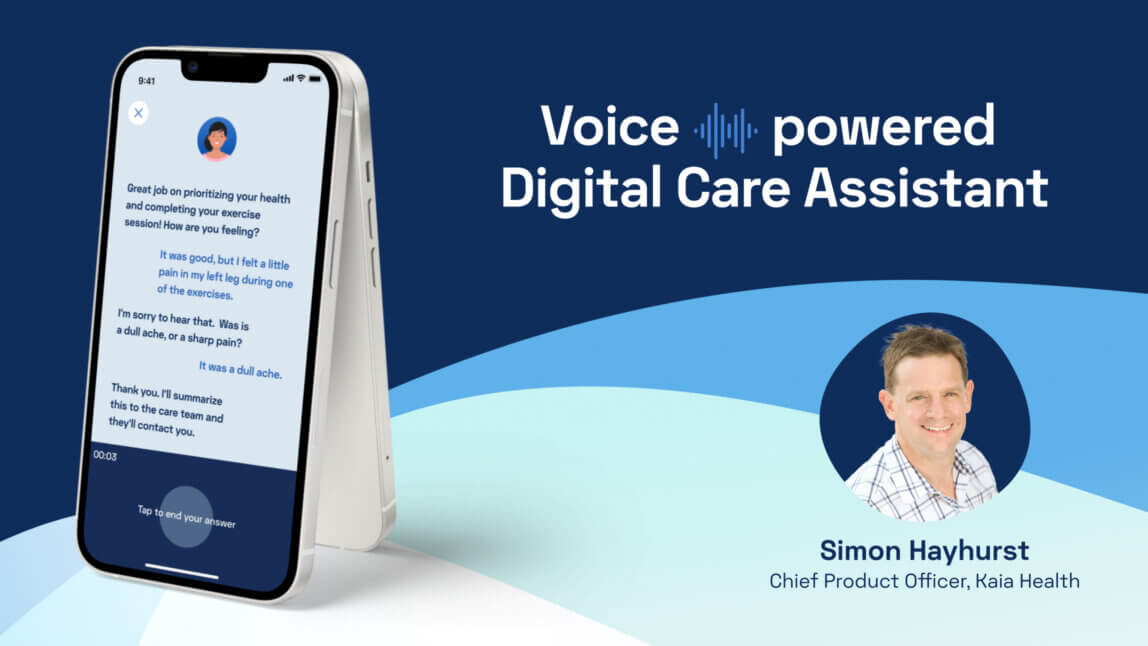
Q&A with Simon Hayhurst, Chief Product Officer
A peek behind the curtain to see how Angela, Kaia’s AI-powered digital care assistant, came to life.
4 min read

Further Reading
-
 Clinical excellence is an essential component of our company philosophy.3 min read
Clinical excellence is an essential component of our company philosophy.3 min read -

Practicing Gratitude for Pain Management
Research shows that gratitude can benefit not only your mental health but your physical health, too! Those who regularly practice gratitude report a higher sense of overall well-being and lower levels of pain.4 min read -

How Ergonomics Can Help Your Employees Take Care of Their Bodies
Sedentary work can take a toll on your company’s physical health. Help your team take better care of their bodies by committing to office ergonomics.5 min read